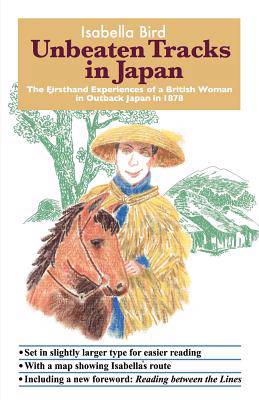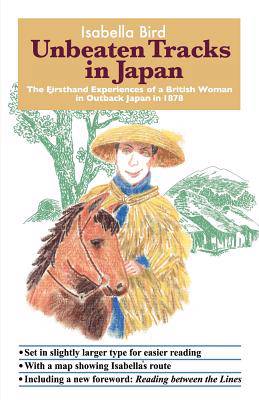
Bedankt voor het vertrouwen het afgelopen jaar! Om jou te bedanken bieden we GRATIS verzending (in België) aan op alles gedurende de hele maand januari.
- Afhalen na 1 uur in een winkel met voorraad
- In januari gratis thuislevering in België
- Ruim aanbod met 7 miljoen producten
Bedankt voor het vertrouwen het afgelopen jaar! Om jou te bedanken bieden we GRATIS verzending (in België) aan op alles gedurende de hele maand januari.
- Afhalen na 1 uur in een winkel met voorraad
- In januari gratis thuislevering in België
- Ruim aanbod met 7 miljoen producten
Zoeken
Unbeaten Tracks in Japan
The Firsthand Experiences of a British Woman in Outback Japan in 1878
Isabella L Bird
Paperback | Engels
€ 45,95
+ 91 punten
Uitvoering
Omschrijving
Isabella L. Bird was one of the most famous British travelers of the nineteenth and early twentieth centuries. Her destinations included Canada, the United States (the Rocky Mountains), Hawaii, Japan, Korea, Persia, Kurdistan, China, and Morocco. She is particularly known for her intrepidness and lively writing style. Written in the form of letters to her sister, her account of her trip to Japan in 1878 is viewed as a classic of travel writing and a valuable account of little documented areas of Japan in that era. Rather than stay in the Tokyo region or travel south to Kyoto, the mecca of Japanese civilization, she chose to travel north through the most arduously mountainous areas and eventually visit the island of Hokkaido, where lived the indigenous Ainu. With the Ainu, Isabella took an ambiguous stance: she admired them tremendously on the one hand but could not, on the other, find it in her heart to remove them from the category of savages. The Foreword, "Reading between the Lines," calls into question the accuracy of Isabella's observations of the Japanese and Ainu and casts doubt on the judgments she formed. Readers are urged to read the book actively, rather than passively, if they are not to be led astray by Isabella's biases and eccentricities.
Specificaties
Betrokkenen
- Auteur(s):
- Uitgeverij:
Inhoud
- Aantal bladzijden:
- 412
- Taal:
- Engels
Eigenschappen
- Productcode (EAN):
- 9784990284800
- Verschijningsdatum:
- 29/04/2006
- Uitvoering:
- Paperback
- Formaat:
- Trade paperback (VS)
- Afmetingen:
- 140 mm x 216 mm
- Gewicht:
- 521 g

Alleen bij Standaard Boekhandel
+ 91 punten op je klantenkaart van Standaard Boekhandel
Beoordelingen
We publiceren alleen reviews die voldoen aan de voorwaarden voor reviews. Bekijk onze voorwaarden voor reviews.









